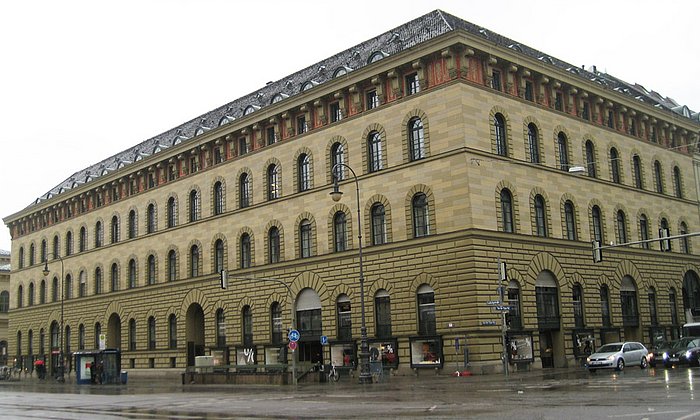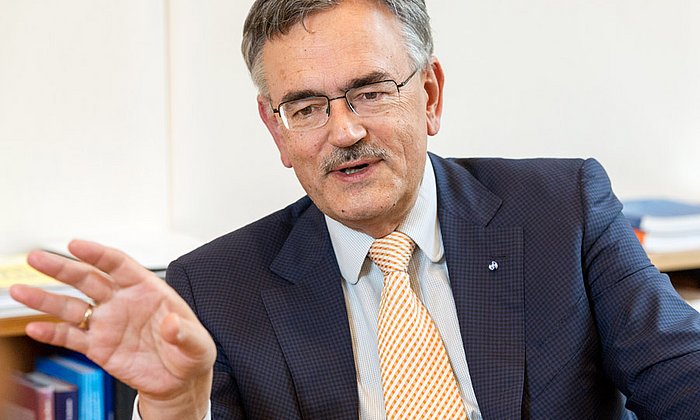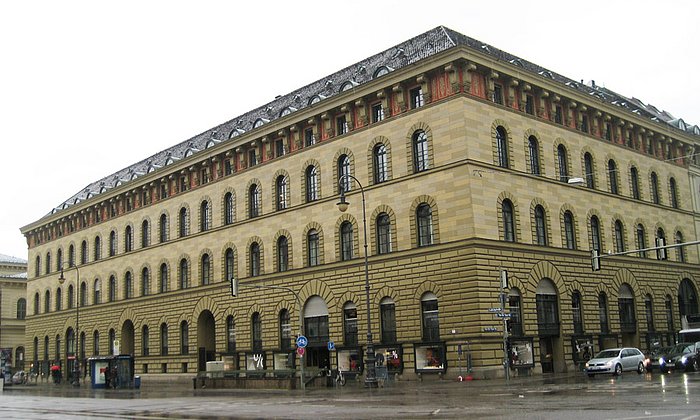Eugénia da Conceição-Heldt appointed as reform rector
Bavarian School of Public Policy ready for takeoff
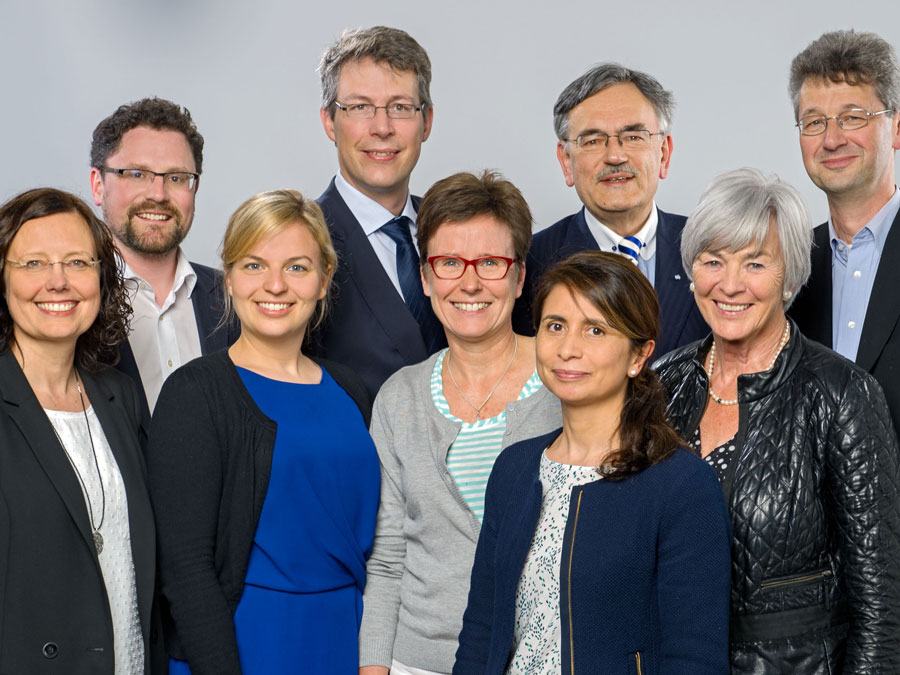
“We transformed the Bavarian School of Public Policy in record time with the help of significant resources from the Bavarian parliament,” comments Prof. Wolfgang A. Herrmann, TUM President and acting reform rector of the HfP. “With experienced international academics on board, the HfP is set to play a key role in shaping research, teaching and political discourse around the political changes we can expect in times of dynamic technical and societal progress.”
“The appointment of a new rector along with six additional professors heralds a new era for the HfP,” proclaimed member of the Bavarian parliament and chair of the reform advisory board Markus Blume following the meeting that tabled the new appointments. “We are beginning to reap the rewards of cross-party cooperation in the transformation of the HfP, which will be a unique institution throughout Germany. It will be extremely well resourced and will benefit from a strong symbiotic relationship with TUM – itself a ‘University of Excellence’.”
The Bavarian parliament decided to make TUM the host university of the Bavarian School of Public Policy in 2014. The main reform objective is to introduce a new focus on the interactions between technical progress, social change and political action. Seven new professorships have been created to meet this objective. The selection process was entrusted to an appointment committee made up of prominent experts in the fields of political science, technology and social science.
- Chair of European and Global Governance / reform rector:
Prof. Eugénia da Conceição-Heldt arrives from the Technical University of Dresden, where she held the Chair of International Politics and the position of Director of the Institute of Political Science. Prior to that, research positions included engagements at Harvard University and the Free University of Berlin. Conceição-Heldt’s research interests are international relations, European integration and the international political economy. In 2010, she received a Heisenberg fellowship from the German Research Foundation (DFG), and in 2012 she was awarded a 1.3 million-euro research grant from the European Research Council (ERC).
- Chair of International Relations:
Prof. Tim Büthe Ph.D. arrives from the Department of Political Science at the prestigious Duke University in the USA. Before that, he conducted research at institutes such as Harvard, Stanford and Columbia. Büthe’s work focuses on the role of institutions in the international political economy and on regulatory policy. His research interests include the political and economic influences of technical standards.
- Professorship of Political Data Science:
PD Dr. Simon Hegelich headed up the interdisciplinary “Shaping the Future FoKoS” research center at the University of Siegen. His research combines political and computer science to create the field of political data science, which has as one of its sub-fields the study of the political relevance of social media. He also uses methods like data mining to analyze more conventional trends.
- Professorship of Political Philosophy and Theory:
Dr. Lisa Herzog works at the Institute for Social Research and in the “Normative Orders” excellence cluster of the University of Frankfurt. Prior to that, her research took her to the Center for Ethics in Society at Stanford, the University of St. Gallen in Switzerland, and Oxford, among other places. Herzog works at the interface between philosophy, politics and economics. Her research interests include the normative aspects of the market economy.
- Professorship of Computational Social Science and Big Data:
Prof. Dr. Jürgen Pfeffer’s most recent position was at the Institute for Software Research at the prestigious Carnegie Mellon University in Pittsburgh. After working for a number of consultancy firms, he did his doctorate at the Technical University of Vienna. Pfeffer’s research focuses on the analysis of large-scale and dynamic social, political and economic systems. This involves studying current big data trends in the context of the social impact of digitalization.
- Chair of Environmental and Climate Policy:
Prof. Miranda Schreurs Ph.D. is Professor of Comparative Politics at the Free University of Berlin, where she also heads the Environmental Policy Research Center. Prior to that, she was Associate Professor in the Department of Government and Politics at the University of Maryland. Schreurs is a member of several political advisory councils in Germany, including at the federal government level, and also in China. Her research focuses on environmental and energy policy, in particular in connection with climate change.
- Professorship of Policy Analysis:
Prof. Dr. Stefan Wurster is a junior professor in political science at the University of Trier. Prior to taking up this position, he carried out research at the University of Heidelberg, where he coordinated the “Policy performance of autocratic and democratic regimes” doctoral program at the Institute for Political Science. Wurster conducts policy analysis in the fields of educational, research, environmental and energy policy. The comparison of regime types is another of his research interests.
HfP and TUM: a teaching alliance
These seven colleagues will play a major role in shaping the new political science Bachelor program, which is set to begin in the 2016/17 winter semester. Other TUM professors will also give classes at the new school, including staff from the interdisciplinary institutes Munich Center for Technology in Society (MCTS) and Munich School of Engineering (MSE). In addition, courses at TUM will also benefit from teaching provided by the newly appointed political science experts.
Technology and the natural sciences in a politics course
The new course will cover all the usual aspects of political science as well as basic knowledge in related fields like economics and law. What is unique about the HfP offering is that it will incorporate highly relevant socio-political topics from TUM’s portfolio of disciplines, i.e., technology, the natural and life sciences, and medicine. Topics covered will include mobility, energy, big data and health care. Students will be able to choose modules from these disciplines and thus shape their specialization profile at an early stage of their studies, also strengthening this through a practical project where they will spend several months working with a policy-shaper in Germany or abroad.
With both full-time and part-time options available, the course is ideal for students who wish to combine work with further education. Applications will be accepted from May 15, 2016. A selection process will take place prior to admission. The HfP plans to develop a master’s degree program based on the Bachelor program.
“Technology plays an important role in just about every area of public policy”
“Rapid advances in technology mean that technological issues play an important, and often decisive, role in just about every area of public policy,” comments TUM President Herrmann. “We see this in the assessment of particular technologies in energy and environmental policy, the consequences of the almost infinite possibilities of data analysis, and the way that digital media have created new ways to engage with political processes. The cross-disciplinary nature of this course should equip graduates with all the tools they need to analyze the interactions between society, politics and technology and shape the political framework around these areas.”
New address: Brienner Forum
The transformation of the HfP means that the school needs a lot more space, particularly as the newly appointed professors will need additional rooms for the staff they are bringing to Munich for their research projects. The new address at Brienner Forum is located right beside TUM’s main campus in Munich. By the middle of this year, 4,500 m2 of floor space will be available for research and teaching at the HfP.
More information:
Hochschule für Politik München (HfP) – Bavarian School of Public Policy
Technical University of Munich
Corporate Communications Center
- Klaus Becker
- klaus.becker@tum.de
- presse@tum.de
- Teamwebsite
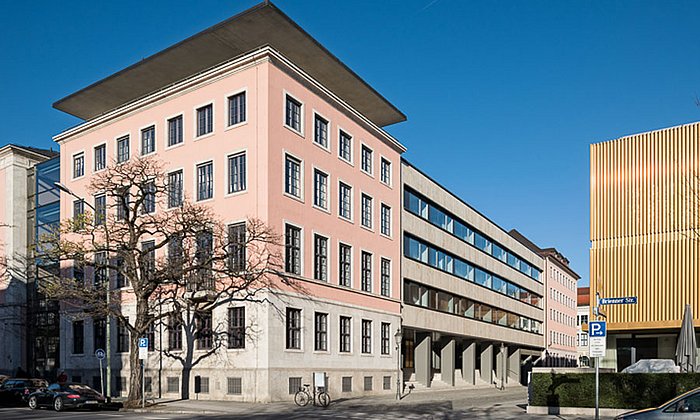
![[Translate to en:] Wie beeinflussen sich Politik, Gesellschaft, Wirtschaft und Technik gegenseitig? Das erforscht die Hochschule für Politik an der Münchner Ludwigstraße. (Bild: HfP) [Translate to en:] Gebäude der Hochschule für Politik an der Münchner Ludwigstraße](/fileadmin/_processed_/a/0/csm_150310_HfP-Gremien_6fb8d5b104.jpg)
